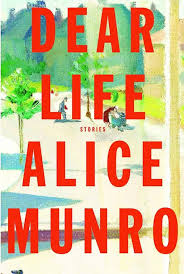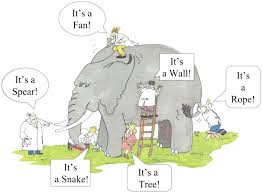


 This is likely Alice Munro’s last book of short stories. It includes a Finale of autobiographical memories. I haven’t read much Munro, not being much of a short story fan, but I’m sure I’ve read at least one other of her collections. I’m trying to read more short story because I want to appreciate it more, and the endeavour has been instructive. I love using short story as a “palette cleanser” between novels. I always read each story twice in a row and then search online for others’ comments about it, that way I learn more and realize things I’ve missed. (Goodreads is a good source to see what others have said–sort of like the “blind men and the elephant tale”–everyone describes something different so all together a range of truth and ideas is provided).
This is likely Alice Munro’s last book of short stories. It includes a Finale of autobiographical memories. I haven’t read much Munro, not being much of a short story fan, but I’m sure I’ve read at least one other of her collections. I’m trying to read more short story because I want to appreciate it more, and the endeavour has been instructive. I love using short story as a “palette cleanser” between novels. I always read each story twice in a row and then search online for others’ comments about it, that way I learn more and realize things I’ve missed. (Goodreads is a good source to see what others have said–sort of like the “blind men and the elephant tale”–everyone describes something different so all together a range of truth and ideas is provided).
Compared to a novel, a short story is a nugget, a bullet, with all of the parts of a longer work condensed into a complete unit that packs a powerful punch. Though not my favourite, I can see the beauty and skill displayed by a short story writer like Munro. What I liked most about Dear Life was the ‘Finale’ where she talks more about her own life. The writing is looser reflections, less complete, and not quite so self-contained–a rare glimpse into Munro’s own childhood, but is it so rare? I think her personal life has already been hinted at through the themes in her short stories.
 Munro is known worldwide for her brilliance as a writer of short stories. She has won, among many other awards, a Nobel Prize in Literature. And yet she tells everyday stories of people living everyday lives. I do like that about her writing, it is very approachable. Her characters are flawed and human and she loves to explore how one event can be the fulcrum around which someone’s life can turn on a dime. From her stories we discover that she is highly critical of men, often characterizing them as thoughtless, selfish, and unpredictable. The women are capable of great love, but are often powerless and weak. I suppose these may have been things she grew up with, or perhaps typical of her parents’ generation in small town Ontario. There really doesn’t need to be an answer. Like the blind men, we can all take away from the stories whatever we like, and enjoy our own observations and interpretations.
Munro is known worldwide for her brilliance as a writer of short stories. She has won, among many other awards, a Nobel Prize in Literature. And yet she tells everyday stories of people living everyday lives. I do like that about her writing, it is very approachable. Her characters are flawed and human and she loves to explore how one event can be the fulcrum around which someone’s life can turn on a dime. From her stories we discover that she is highly critical of men, often characterizing them as thoughtless, selfish, and unpredictable. The women are capable of great love, but are often powerless and weak. I suppose these may have been things she grew up with, or perhaps typical of her parents’ generation in small town Ontario. There really doesn’t need to be an answer. Like the blind men, we can all take away from the stories whatever we like, and enjoy our own observations and interpretations.
Are you a short story fan? Do you have any advice for short story reluctant readers like me? Do you have a favourite Alice Munro collection?

